Description
Traditional project management has long been hyped, especially by new hypes, and in many places serves as a negative counter-example to agile frameworks. It’s a pity, really, because those who know their way around know that real project management expertise involves more than just mastering a tool or a procedure. After all, it is precisely in the context of our volatile, uncertain, complex and contradictory VUCA world that one is well advised to have a complementary toolbox. This is why established, comprehensive standards such as the Project Management Professional (PMP®) of the Project Management Institute (PMI®) are basically gaining in importance: The logic of the phase models of the standard serve different project types and contexts from simple and predictable – keyword “Predictive” – to complex, uncertain and novel – keyword “Agile”. In addition, the standard includes proven methods and tools from different disciplines (the so-called “knowledge areas”), which are relevant and useful for the successful management of projects of any kind. The standard is continuously revised by the PMI® community and thus receives its relevance and the claim to show “best practices” from project management.
Content
Framework
Definitions • Business environment and organisational influences • Project organisation • Project life cycle • Role of the project manager • Professional responsibility • Project management processes
Integration Management
Develop project order • Develop project management plan • Steer and manage project execution • Manage project knowledge • Monitor and control project work • Perform integrated change control • Complete project or phase
Procurement Management
Procurement management planning • Procurement execution • Procurement control
Stakeholder Management
Identify stakeholders • Plan stakeholder engagement • Manage stakeholder engagement • Monitor stakeholder engagement
Content and scope management
Plan content and scope management • Gather requirements • Define content and scope • Create work breakdown structure (WBS) • Validate content and scope • Control content and scope
Scheduling Management
Schedule management planning • Define activities • Determine sequence of activities • Estimate duration of activities • Develop schedule • Control schedule
Cost Management
Plan cost management • Estimate costs • Set budget • Control costs
Quality Management
Planning quality management • Managing quality • Steering quality
Resource Management
Planning resource management • Estimating resources for tasks • Procuring resources • Developing a team • Managing a team • Controlling resources
Communication Management
Planning communication management • Managing communication • Monitoring communication
Risk Management
Plan risk management • Identify risks • Carry out qualitative risk analysis • Carry out quantitative risk analysis • Plan risk management measures • Implement risk management measures • Monitor risks
+ Test Exams
Objectives
- You will gain a good insight into the management disciplines relevant to project management (so-called knowledge areas).
- You will get to know useful methods, structuring aids, tools and techniques.
- You will be prepared for the exam effectively and playfully with a fun factor.
Technical Requirements
- Computer / Tablet
- Internet access
- Microphone (usually integrated in the device)
- Camera (usually integrated in the device)
- Internet browser (e.g. Chrome)
Requirements
Please refer to the official website of the Project Management Institute (link) for all prerequisites for PMP® certification.

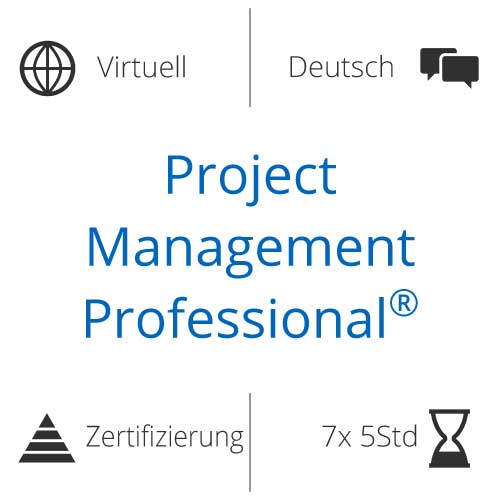
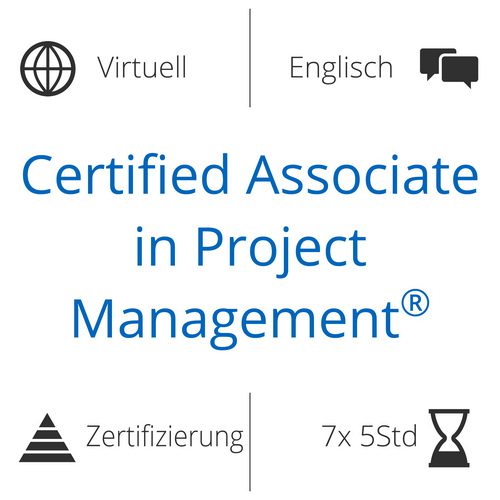
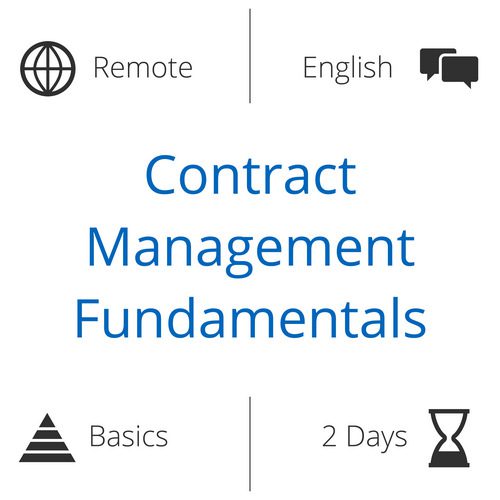
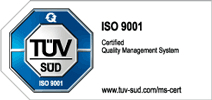
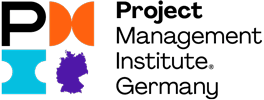
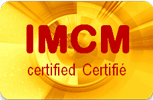




Reviews
There are no reviews yet.